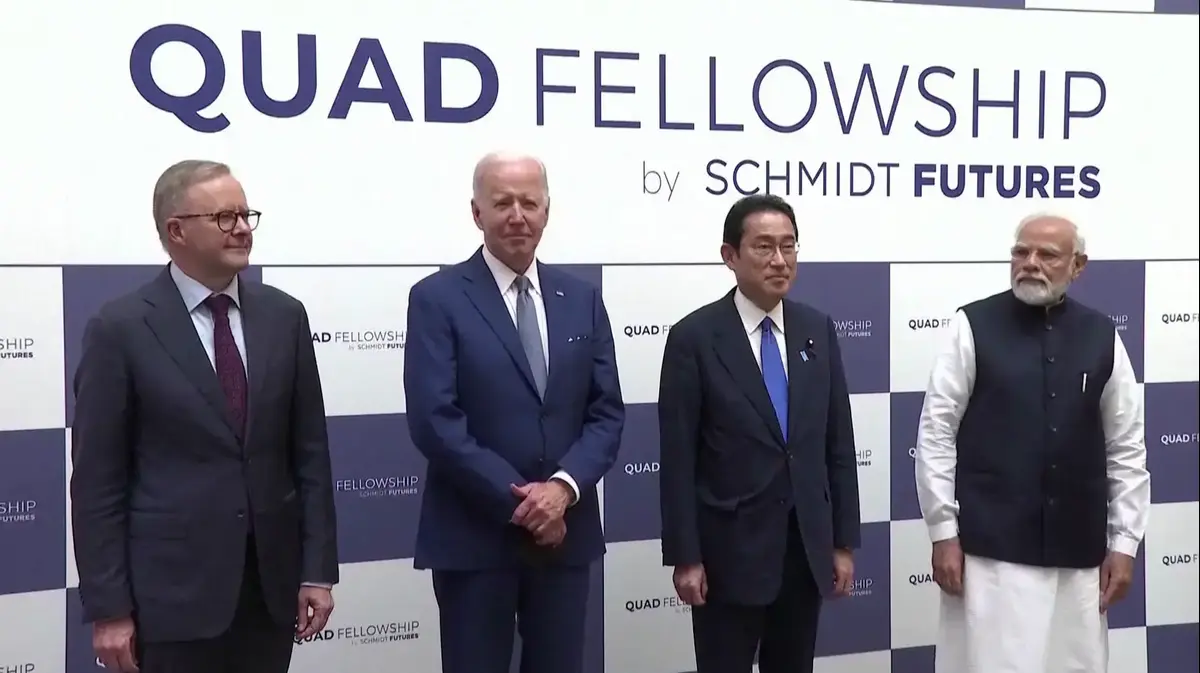Biden sends conflicting messages about Taiwan - and this has global implications
The US president's statement that he is ready to intervene militarily if China attacks Taiwan contradicts Washington's long-standing strategic ambiguity policy regarding the island - upsets China and sends Russia straight into Beijing's lap
Tali Goldstein
24/05/2022
Tuesday, 24 May 2022, 11:36 Updated: 11:51
Share on Facebook
Share on WhatsApp
Share on Twitter
Share on Email
Share on general
Comments
Comments
In the video: Biden answers reporters' questions about Taiwan and says there is no change in policy (Photo: Reuters)
China warned tonight (Tuesday) that the United States is "playing with fire" after US President Joe Biden said Washington would defend Taiwan militarily if the island was attacked by Beijing.
" On Taiwan's card to restrain China, but it itself will be burned. "Chinese state news agency Shinhua quoted the ministry's spokesman Zhu Panglian as saying he was urging the United States to" stop with any statements or actions that improved "previous established principles" between Beijing to Washington.
More on Walla!
Biden: Ready to intervene militarily to protect Taiwan from attack "
To the full article
US President Joe Biden with Chinese President Xi Jinping (Photo: AP, Carolyn Kaster)
Biden said in Tokyo yesterday that if Taiwan is attacked by China, it is ready to intervene militarily to defend it - a statement that undermines US long-standing policy, which advocates strategic ambiguity on the Taiwan issue.
However, a day after the surprise statement, Biden stressed that there is no change in US policy.
"My policy has not changed at all. I said this yesterday in my statement," he told reporters.
The White House was also quick to back down from the statement, saying that "we reiterate our commitment under the Taiwan Relations Act to provide the non-military with means to defend itself."
Under the law, passed in 1979, the US Cognars undertakes to sell weapons to Taiwan so that it can defend itself - but the law does not address the question of whether the United States is obligated to defend Taiwan militarily in the event of an attack.
China is urging the US not to send false messages about Taiwan's independence
In video: China calls on US to stop sending false messages to Taiwan's independence forces (Photo: Reuters)
For years China was called the "Republic of China" and the island of Taiwan was an integral part of it.
In 1949, the Communists led by Mao Zedong won the country's civil war, declaring the establishment of the "People's Republic of China".
Chiang Kai-shek, the leader of the National Party and his men fled to the island of Taiwan, where the state of Taiwan was founded, which continues to be called the "Republic of China."
The two republics claim sovereignty over China and do not recognize each other.
They maintain trade ties, but there is great tension between them amid a constant threat from China to occupy Taiwan.
China advocates a policy called "one China", under which there is only one Chinese government.
Countries, including the United States, recognize and maintain official relations with China as opposed to Taiwan, which is perceived by China as a separatist province that must be united with the continent.
Taiwan, on the other hand, has positioned itself alongside the West, and especially the United States, which for its part has not had official diplomatic relations with the island since 1979, when it renewed its official relations with China under President Jimmy Carter.
As a result, the United States was forced to cut ties with Taiwan and close its embassy in Taipei.
However, it defines the sovereign island as a "partner".
The United States also sells arms to Taiwan and trade ties between the two nations are strong.
This is the third time in the past year that Biden has been seen abandoning the ambiguity policy.
Also on the previous two occasions, the White House was forced to declare afterwards that there was no change in American policy.
Commentators, however, now believe that Biden's statements are not coincidental, and that there has indeed been a change in policy towards Taiwan - which could increase tensions between the United States and China.
The goal of the ambiguity strategy is to restrain both sides - to loosen Beijing's hands from an attempt to attack Taiwan, and on the other hand to ensure that Taiwan does not declare full independence from China, which has sent China into action against it.
In the last two decades, China has also increased its military capabilities so that in the future it can take over Taiwan and prevent American involvement.
However, as Chinese capabilities improve, Chinese President Xi Jinping has begun to adopt a more assertive foreign policy to suit China's rise as an economic force in the international arena.
In response, Washington began to take a tougher stance against Beijing.
Taiwanese Navy military exercise in 2017 (Photo: AP)
Thus, a discussion began in Washington about its strategic ambiguity policy and effectiveness - with the US Congress and security establishment officials arguing that it no longer serves its purpose - deterring China.
Those who support a new policy of "strategic clarity" argue that transparency will deter China from attacking Taiwan because such a move would involve it in a direct confrontation with the United States.
Proponents of the ambiguity warn that a military commitment to Taiwan will encourage Taiwanese leaders to take risks that will involve the United States in a conflict that is against its interests.
Chinese President Xi Jinping shakes hands with Russian President Vladimir Putin in 2019 (Photo: Reuters)
There is also another side in the international arena that is affected by US-China relations: Russia.
Following Biden's statement yesterday, the Russian Foreign Ministry was quick to say that Moscow was willing to consider proposals from the West to improve relations - but would focus on developing relations with China.
Foreign Minister Sergei Lavrov said at an event in Moscow yesterday that Russia is working to replace imports of products from Western countries, and in the future will rely only on "credible" countries that are in no way committed to the West.
He stressed that Moscow's goal now is to further develop relations with China.
"Russia should rely only on itself and on countries that have proven themselves credible and not dancing to someone else's flute voice," Lavrov added.
news
World news
Tags
China
Joe Biden
United States
Taiwan





/cloudfront-eu-central-1.images.arcpublishing.com/prisa/FIJVMOBHZRWVDBKS3NAQ2M4JRE.jpg)